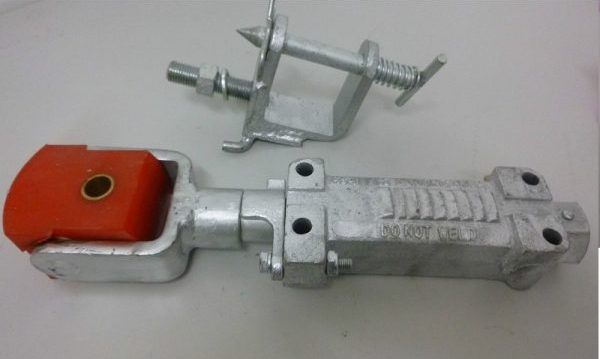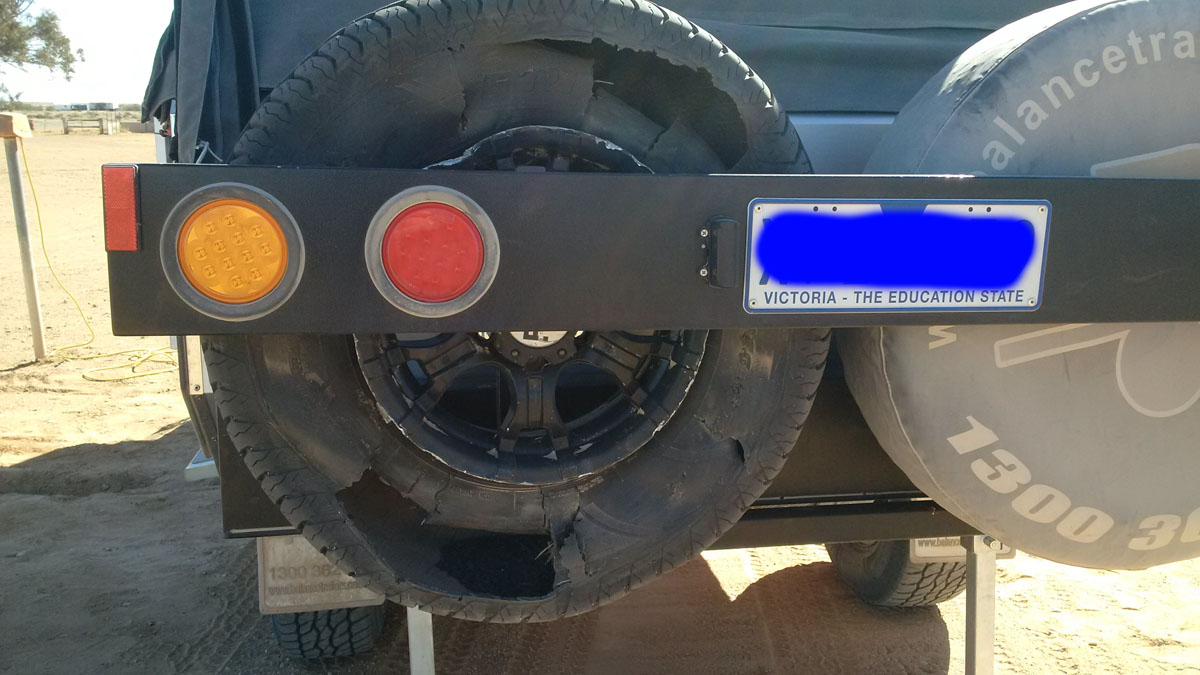Why do any preparation ?
We prepare for our trip in the hope that all our preparation will ensure a trouble free and enjoyable trip.
We need to prepare ourselves and our home base for a possibly extended absence. We need to prepare our caravan or camper if we are using one for the trip. We need to prepare our towing vehicle if we are towing. We need to prepare all of the things that we’ll be taking – portable toilet, clothing, fridge / ice box, etc. A critical one is that we need to prepare our finances.
If we manage to get the preparation right, an enjoyable and trouble free trip, whether it be for a weekend trip or a year long “lap” will result.
The camper
Let’s start with the easiest first. Well, it isn’t easy by any means. It is a lot less complicated than your towing vehicle though.
Simple things first. Connect it to the vehicle and test the lights. If they all work as required then good, that’s done. If they don’t then you need to replace bulbs, check connectors, etc. to make sure that they do.
Brakes. Tow it around the block and check the brakes for correct operation whether the be simple override brakes or electric. Do they work properly ? If yes, then good. If no, then either fix them or get them fixed.
Wheel bearings. How many kilometres have they done since they were serviced. If it’s getting a bit up there then now is the time to pull them apart and clean and re-grease them and put them back together properly.
While you’re doing the wheel bearings you can get under the camper to check and grease the suspension. Make good and sure that all of the fixings are tight and that there are no visible issues with the trailing arms, springs and shock absorbers. While you’re are under there you can check connectors, all fasteners, water tank mounts, etc. Check everything.
The tow coupling. We use a poly block hitch so all we need to do in that department is a bit of silicone spray or grease for the top and bottom and the pin and to check the actual block for cracks. There will be a grease nipple or two on the body so a squirt of grease is a good idea too.

Check the bolts that hold it onto the trailer. Don’t just look at them. Use a correct sized socket and a breaker bar and make sure that they are tight.
The electrical system. Check all, and I do mean all connectors are clean and tight. Check your batteries and make sure that they are fully charged and that they have good capacity and will hold a charge. The easiest way to do this is to charge the batteries overnight until fully charged. Let them sit with no load and measure the voltage. If it’s still showing 100% state of charge turn on the fridge or a few lights for an hour or so. It should be showing very nearly 100% state of charge. Reliable batteries are essential. They power your water pump and fridge as well as lights, phone chargers, etc. If you charge the batteries from the vehicle while you’re travelling make sure that works as well. Waking to flat batteries with thawed food and no water pump is not pleasant. While you’re at it check for correct operation of the mains 240V system if you have one. If you find it wanting you must have it sorted out by a licensed and registered electrician.
The same goes for your water and gas systems. Check very carefully for correct operation and leaks. If you find water leaks either get them fixed or repair them yourself. Make sure that the water pump still works. While you’re at it use the pump to empty the tank(s) and remove the bung to drain them completely and refill with clean drinking water. If you find any issues with the gas system then you must have a licensed and registered gas fitter rectify the problem.
Remember that if you don’t use a licensed gas fitter or electrician and your camper or caravan has anything untoward happen you may be giving your insurance company an easy way out.
And last but by no means least your wheels and tyres. Wheel nuts done up to the correct torque, tyres have good tread and are at the correct pressure and check the condition of your spare(s).

The car
First things first. Wash it. Clean the outside and the inside.
You can take the easy way out and get it inspected by a competent mechanic. Tell them what you’re about to do and ask them to make sure that the vehicle is in tip top condition and that they do a full service. It will be expensive but it will repay the expense in peace of mind and reliability.
A full check is beyond the scope of this article as there are many different makes and models, all of which have their own needs and quirks. As a minimum you need to have reasonably new oils – all of them. Engine, gearbox, transfer case (if you have one), differential(s), brake fluid, power steering fluid, coolant, etc. Your wheel bearings, ball joints, drive shafts, CV joints (and boots) all need to be checked and greased or oiled as required. Belts, all filters and all suspension components need a thorough checking.
If you intend to travel along one or more of the iconic tracks (Oodnadatta, Birdsville, Gibb River Road, Tanami, etc.) the suspension and running gear is going to cop a pounding so get it all checked.
Remember that while you’re towing the whole car is put under a lot of stress and strain. Making sure that it’s in tip top condition will enable it to cope and give you peace of mind.
If you’re very familiar with your vehicle and are capable and confident then by all means do it yourself. If you’re not then get a mechanic who knows what they are doing to do it for you. As I said at the outset, it will be expensive but well worth it.
Ourselves
What do I mean by preparing ourselves ?
Before we set off on an extended trip we need to have everything at home sorted out. It’s no use setting off on a long trip having nagging doubts about what’s happening at home. I’m not going to make a list here but my wife has a few that we would be lost without. In the near future I’ll post a spiel about our lists and what’s in them.
What else do we need to do ? Well, for starters we should really be prepared for an extended time together with very little time apart. We’ll be cooped up in the car for a number of hours on most days. When we’re not in the car we’ll probably be in the camper or engaging in some activity together. Be sure that you’re both mentally prepared for that.
Do you need a house sitter ? Have you organised someone to collect the mail and papers ? Can someone water the garden and mow the lawns if required ? What about getting your mail held for you ?
There are lots and lots of things to consider before you leave for an extended trip. If you make a list and tick off everything then you need not be worried about what’s going on at the home front.
A final word
Seeing as a lot of us are getting a bit older there is one more consideration. Medical issues.
Where we go there are few medical facilities. In a lot of places the best you can hope for is a doctor visiting once or twice a week because they don’t have a permanent doctor. They will probably have a list of patients as long as your arm to see on the days that they are there. In small towns there may be no pharmacy either.
So what do you do ? Well, before you leave for you great adventure visit you usual doctor in your home town and get checked over. I’m diabetic (Type II) so I make sure that’s under control and that there are no other pending issues. This usually involves a blood test. I get a letter from the doc. outlining all of my medications and get a prescription that will cover me for the time that I’m going to be away.
When I got to the pharmacy I ask them to dispense more than enought to last me until I get to another major centre where there’s a pharmacy that can dispense more.
We have seen during times of emergency – floods, fires, etc. – people going to a medical centre or smaller hospital demanding that the be seen so that they can get another prescription or medical treatment for a known ailment. It behoves us, as tourists, to do our best to not place a load on an already stretched resource.
Of course there will be emergencies of one sort or another that require immediate attention or worse, evacuation.
Remember that your lack of planning may cause a long time resident of a small, outback town to have to have thier dialysis delayed which may put them in a life threatening situation.
Be a good tourist and don’t use local, limited resources if it’s at all possible. Have enough medications / drugs to last between large centres.
Above all else, don’t be one of those “entitled”, needy types that we all despise.

Really good info for a traveler. Very informative! Thanks, Mark!